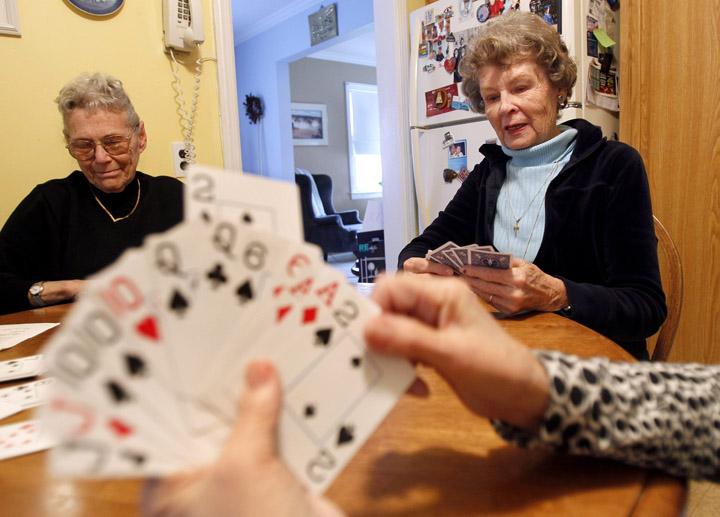TORONTO – Is loneliness as bad for aging Canadians as their growing waistlines? A new study is suggesting that feeling extreme loneliness might even be worse for seniors and their health.

The study suggests that seniors reconsider trips down south to warmer climates if it means they’ll be living alone or among strangers they aren’t forging bonds with.
While there’s been a flood of information about diet, exercise and maintaining a healthy weight to live longer, new research is pointing to the importance of mental health and stable relationships.
U.S. psychologist Dr. John Cacioppo says that loneliness and isolation can increase an older person’s risk of premature death by 14 per cent – that’s twice the impact as obesity.
“We are experiencing a silver tsunami demographically. The baby boomers are reaching retirement age,” Cacioppo said. He’s a leading expert on loneliness and a University of Chicago professor.
“People have to think about how to protect themselves from depression, low subjective well-being and early mortality,” he said.
READ MORE: Canada is 6th happiest country in the world, global study finds
After studying how peoples’ mental and physical health decline as they age, Cacioppo and his team considered how relationships can help with coping with stress, learning resiliency and bouncing back from difficult moments.
Cacioppo said that loneliness is a force to be reckoned with. It not only dampers our mood, but it disrupts sleep, elevates our blood pressure, increases stress hormones like cortisol and increases depression. These risks play with our immune systems and our overall feelings of well-being.
- Capital gains changes are ‘really fair,’ Freeland says, as doctors cry foul
- Ontario doctors offer solutions to help address shortage of family physicians
- ‘Dangerous message’: Experts slam anti-sunscreen claims circulating online
- ‘Trying not to die’: Tourism operators loaded with debt despite rising demand
READ MORE: Not too late for seniors to take up exercise for better health, longer life
So how should seniors avoid isolation? Cacioppo suggests that they should stay in touch with former co-workers, take part in family traditions and spend time with loved ones. This gives us time to connect with others, care for them and be cared for in return.
“Returning to Florida to live in a warmer climate among strangers isn’t necessarily a good idea if it means you are disconnected from the people who mean the most to you,” Cacioppo said.
READ MORE: Brain exercise trumps medication in maintaining seniors’ cognitive health
Some people are happy in solitude but most of us feed off of social situations and gaining support from others. Cacioppo points to three dimensions of healthy relationships: intimacy shared with a partner, relationships spent with face-to-face time with others and a connectedness which comes from feeling like you’re part of a group.
What affected seniors’ death risk most was socioeconomic status – being on the disadvantaged side increased risk of an early death by 19 per cent.
Cacioppo presented his findings this weekend at the Science of Resilient Aging seminar in Chicago.
carmen.chai@globalnews.ca
Follow @Carmen_Chai




Comments